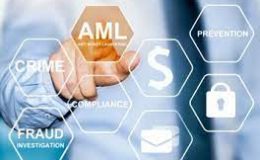How Will Higher Rates Affect Housing?
How Will Higher Rates Affect Housing?
DAILY NEWS
Time is ticking: The Federal Open Market Committee is less than a week away from what most analysts predict will be a vote to raise the federal funds rate for the first time since June 2006. An uptick in the federal funds rate would then prompt interest rates to move higher. Read more: REITS and Rates: The Investor Landscape Some housing analysts say just the anticipation of the rate hike is already affecting the housing market. “The housing market’s capacity for existing-home sales is declining with the expectation of a Fed rate increase pre-adjusting mortgage rates and causing a slowdown in house price appreciation,” notes Mark Fleming, chief economist at First American Financial, in a new report on the fourth quarter Real Estate Sentiment Index. “Market capacity remains modestly in excess of actual sales due to leverage-assisted housing asset inflation, which is home price appreciation fueled by low mortgage rates. Rising mortgage interest rates and moderation in house price appreciation were the most important market fundamentals that reduced market capacity this month. Now that interest rates are pre-adjusting in response to signals from the Fed for a highly expected increase in December, demand is also declining.” A 25-basis point rise in the 30-year fixed-rate mortgage, for example (which was at 3.93 percent for the week ending Dec. 3), would likely slow home appreciation by 1 percent more than expected without the rate increase, Fleming says. He also predicts that existing-home sales would then slow by about 2.5 percent on annualized and seasonally adjusted basis, a decline of less than 150,000 sales a year. “The housing market isn’t doomed by a Fed rate increase, but demand would fall modestly,” Fleming maintains. Just how big of an impact could it have to potential home shoppers’ wallets? Forbes.com cites an example of a 30-year fixed-rate mortgage with a 10 percent down payment on a $350,000 home at 4 percent will cost home purchasers about $1,503.86 per month plus taxes, home owner’s insurance and Private Mortgage Insurance. That same 30-year fixed-rate mortgage with a 4.5 percent interest rate will cost a home buyer $1,596.06 per month – an extra $92.20 per month or $33,191.54 over the 30-year life of a mortgage. If rates rise to 5 percent the costs will jump to an extra $184.40 per month and $66,383 over the 30 year life of the loan. Despite the uptick in rates, “expectations for future home ownership demand remain positive, despite changing market conditions,” Fleming notes. The First American report showed that interest rates would need to reach 5.1 percent before significantly influencing the volume of residential transactions. Source: “What Will the Looming Fed Rate Hike Do to Housing?” HousingWire (Dec. 9, 2015) and “How Much House Will a Rate Hike Cost You?” Forbes (Nov. 8, 2015)
Time is ticking: The Federal Open Market Committee is less than a week away from what most analysts predict will be a vote to raise the federal funds rate for the first time since June 2006. An uptick in the federal funds rate would then prompt interest rates to move higher.
Read more: REITS and Rates: The Investor Landscape
Some housing analysts say just the anticipation of the rate hike is already affecting the housing market.
“The housing market’s capacity for existing-home sales is declining with the expectation of a Fed rate increase pre-adjusting mortgage rates and causing a slowdown in house price appreciation,” notes Mark Fleming, chief economist at First American Financial, in a new report on the fourth quarter Real Estate Sentiment Index. “Market capacity remains modestly in excess of actual sales due to leverage-assisted housing asset inflation, which is home price appreciation fueled by low mortgage rates. Rising mortgage interest rates and moderation in house price appreciation were the most important market fundamentals that reduced market capacity this month. Now that interest rates are pre-adjusting in response to signals from the Fed for a highly expected increase in December, demand is also declining.”
A 25-basis point rise in the 30-year fixed-rate mortgage, for example (which was at 3.93 percent for the week ending Dec. 3), would likely slow home appreciation by 1 percent more than expected without the rate increase, Fleming says. He also predicts that existing-home sales would then slow by about 2.5 percent on annualized and seasonally adjusted basis, a decline of less than 150,000 sales a year.
“The housing market isn’t doomed by a Fed rate increase, but demand would fall modestly,” Fleming maintains.
Just how big of an impact could it have to potential home shoppers’ wallets? Forbes.com cites an example of a 30-year fixed-rate mortgage with a 10 percent down payment on a $350,000 home at 4 percent will cost home purchasers about $1,503.86 per month plus taxes, home owner’s insurance and Private Mortgage Insurance. That same 30-year fixed-rate mortgage with a 4.5 percent interest rate will cost a home buyer $1,596.06 per month – an extra $92.20 per month or $33,191.54 over the 30-year life of a mortgage. If rates rise to 5 percent the costs will jump to an extra $184.40 per month and $66,383 over the 30 year life of the loan.
Despite the uptick in rates, “expectations for future home ownership demand remain positive, despite changing market conditions,” Fleming notes.
The First American report showed that interest rates would need to reach 5.1 percent before significantly influencing the volume of residential transactions.
Source: “What Will the Looming Fed Rate Hike Do to Housing?” HousingWire (Dec. 9, 2015) and “How Much House Will a Rate Hike Cost You?” Forbes (Nov. 8, 2015)




